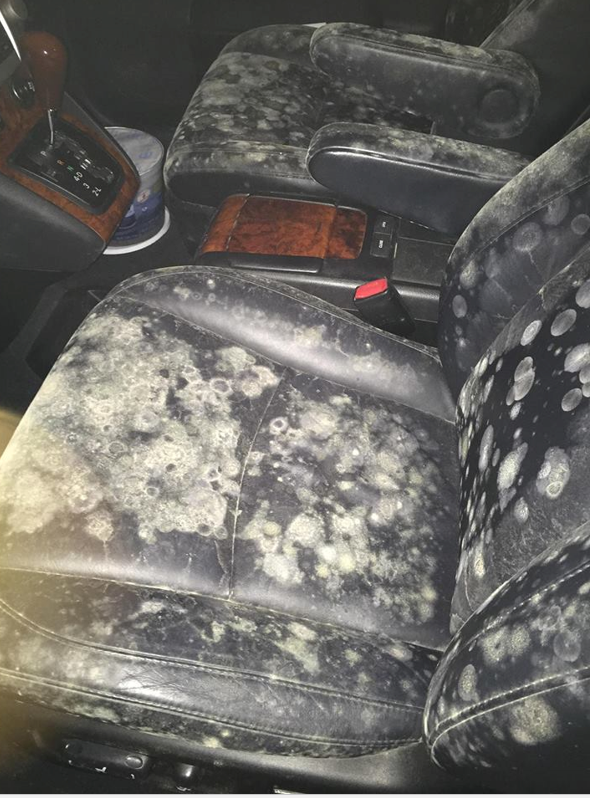Why the Risks of Using a Moisture Extraction Product in Your Car May Outweigh the Benefits
It may seem like a quick fix but you need to be aware of the potential risks and learn about other solutions.

Why the Risks of Using a Moisture Extraction Product in Your Car May Outweigh the Benefits
Moisture inside a vehicle can lead to mildew, odors, and long-term damage, making moisture extraction products a tempting option for managing dampness. However, despite their convenience and effectiveness in some situations, the potential risks associated with their use often outweigh the benefits. Let’s explore why relying on these products in your car may not be the best solution and discover better alternatives for moisture management.
Perceived Benefits of a Moisture Extraction Product in Your Car
- Moisture Control
These products absorb excess moisture from the air, potentially reducing the chances of mold or mildew growth, especially after exposure to rain or humidity. - Odor Reduction
By minimizing moisture, they can help reduce musty odors that develop in damp environments, keeping your car smelling fresher. - Convenient and Discreet
Moisture extraction products are easy to use and can be tucked away under seats or in the trunk, working quietly until they need replacing.
The Reality: Why These Products May Not Be Worth the Risk
- Spillage Risks Can Cause Serious Damage
One of the most significant drawbacks of moisture extraction products is the risk of spillage. A crack or tip can lead to leaks, causing damage to your car’s interior—especially carpets and leather. If the solution spills, it continues to absorb moisture, compounding the problem and leading to hard, cracked leather and damp carpets. - Frequent Replacements Are Inconvenient and Costly
In humid conditions, these products fill up quickly, requiring frequent replacements. This can become inconvenient and expensive, as their limited capacity means they may not effectively manage moisture over longer periods. - Limited Effectiveness in a Car's Large Space
A car’s interior is often too large for a moisture extraction product to be truly effective. While they absorb some moisture, they lack the power to control humidity levels throughout the vehicle, leaving it vulnerable to moisture-related issues. - Potential to Over-Dry the Air
Long-term use of these products can lead to overly dry air, affecting comfort and potentially damaging materials like leather, which relies on some moisture for flexibility and texture. - False Sense of Security
Relying on moisture extraction products can create a false sense of security. They may absorb moisture, but they do not actively prevent mold or mildew growth, leaving your vehicle at risk—especially during long-term storage.
Better Alternatives for Long-Term Moisture Management
Instead of relying on moisture extraction products, consider more effective and proactive strategies to protect your car from moisture damage:
- Thoroughly Clean and Dry the Interior
Before storing your vehicle, ensure the interior is cleaned, wiped down, and vacuumed to remove any organic material that could become a food source for mold in humid conditions. - Set the Climate Control/Damper Door to Recirculate
Before turning off the engine, turn the AC off and set the climate control system to recirculate. This inhibits humid air from entering the cabin through the air intake vents, helping to seal off the interior from the moist air of your garage. - Close All Windows
Ensure all windows are closed to further seal the interior from humid garage air, reducing the risk of moisture buildup. - Use a Dehumidifier in the Garage
If possible, employ a dehumidifier in your garage to control overall humidity levels. This helps create a drier environment for your vehicle, minimizing the chances of moisture problems. - Ensure Proper Ventilation in the Garage
Maintaining good ventilation in the garage allows for air circulation, further reducing humidity levels. This is crucial for keeping the air inside your vehicle dry. - Regularly Check and Ventilate the Vehicle
Periodically inspect stored vehicles for signs of moisture and ensure they are adequately ventilated. This can involve airing out the vehicle by opening the doors and windows occasionally. - Drive the Vehicle Regularly
- Check out the Car Drive BLOG:
Conclusion: The Risks Outweigh the Rewards
While moisture extraction products may seem like a quick fix for managing dampness and odors in your vehicle, the potential risks—including spills, damage to the interior, limited effectiveness, and a false sense of security—far outweigh any short-term benefits they might offer. For effective moisture control, focus on thorough cleaning, ventilation, and the use of dehumidifiers. These strategies provide lasting protection without the downsides of moisture extraction products, ensuring your vehicle remains safe from moisture-related damage.
Author: Diane Pisani, Founder Home Watch Academy
Disclaimer: The views expressed are those of the author and don't reflect those of any affiliated organizations. This blog is for general information only, with no guarantees of accuracy. Readers should consult with other professionals for specific advice. The author is not liable for errors or damages. External links aren't endorsements.






